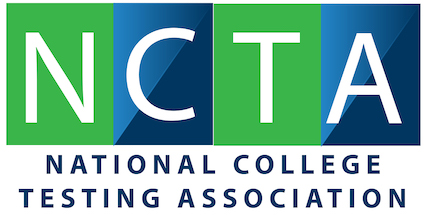Virtual Conference 2018
Sponsor Workshop: GradeHub - A Smarter Way to Grade Answer Sheets
Presenter: Mark Espinola, GradeHub
How do you grade tests? Do your instructors still use scantrons? Hear from GradeHub’s founder and former division president of Scantron, and learn about a smarter way to grade answer sheets. Seamlessly integrated, GradeHub allows instructors to create, print, grade, and analyze multiple-choice tests taken on GradeHub–Answer Sheets all within a learning management system. Classes, rosters, exams, and grades are all automatically synchronized to eliminate errors, save time, streamline administration, improve security, and promote timely feedback to instructors and students. GradeHub scores answer sheets on a cloud-based “hub” from PDF files. That means a testing center can centrally upload answer sheets using any scanner with no forms to buy. And, teachers can analyze scored data, make corrections, and view reports in a web browser from anywhere, at any time.
Sponsor Workshop: RegisterBlast
Sponsor Workshop: On the Horizon with Tailwind Placement Exams
Presenters: James Wollack, Ph.D., University of Wisconsin
Sonya Sedivy, University of Wisconsin
Come learn about some exciting new advancements that the Tailwind placement testing program has to offer! Tailwind placement exams combine over 40 years of placement testing experience from the University of Wisconsin System with the unparalleled test delivery engine and customer service of Castle Worldwide. This year, Tailwind is rolling out a new multistage adaptive mathematics exam designed for efficiency while maintaining accurate placement for students at all ability levels. This one test provides a unique solution which allows for placement into a range of courses from developmental level math to introductory calculus. In addition to describing the new math exam, the presenters will also discuss the benefits of the Combined riting and Reading exam, and give an overview of the three World Language placement exams which are all part of Tailwind's comprehensive placement testing solution.
Session 1A: Understanding Best Practices in Test Accommodations and Accessibility
Presenters: Timothy O'Connor, University of Wisconsin-Madison
As testing centers, we all want to be sure we are providing the best experience we can for our customers/students. As the demand grows for providing test accommodations for candidates with disabilities, how do we know we are creating and maintaining the best environment that we are capable of providing? This presentation will help testing centers ensure they are offering and delivering the best practices in test accommodations and accessibility. Some of the areas covered will include: understanding appropriate and reasonable accommodations and how to ensure these are being provided, understanding universal design and why accessibility helps everyone using your testing center and the importance of working together with all entities involved in providing test accommodations. Some valuable tips such as maintaining appropriate etiquette with people with disabilities and ensuring that your test center is as accessible as possible with be discussed in some detail. This presentation will be especially helpful to those new to providing test accommodations or to those who just want a refresher on accessibility.
Session 2A: How Can a Small Test Center Survive and Thrive?
Presenter: Cindy James, Thompson Rivers University
If your center has limited space (e.g., less than 10 testing stations) and minimal staffing (e.g., 3 staff members, 2 of which are part-time), how do you provide professional testing services to more clients in a timely manner? In this session, the presenter will provide an overview of the various strategies she has employed in her small testing center to help it survive and thrive. Starting with a basic overview of her center and the services it provides, the presenter will move on to discuss a variety of topics. This will include a presentation of several simple and fairly inexpensive ways to enhance security; a demonstration of online registration and payment forms created locally to minimize cost and address the specific needs of the smaller test center; a discussion about creative solutions to maximize space and staffing, including the utilization of auxiliary staff and retirees; examples of how best to deploy the different modes of communication in order to maximize their impact; a discussion about the importance of data collection that will include examples of monthly and annual activity reports; insights into how to achieve a balance between the demands for testing services by students, programs, departments and the community at large; and last, but not least, how to generate ongoing revenue from all of these activities. Throughout the presentation, participants will be encouraged to share experiences from their own small testing centers. After the session, participants should walk away with multiple ideas for maximizing the benefits of a small center while minimizing the challenges.
Session 3A: The Value of Testing
Presenters: Rachel Schoenig, Cornerstone Strategies
Jarret Dyer, College of DuPage
James Wollack, Ph.D., University of Wisconsin
Media coverage of testing has been primarily negative in recent years, providing a national and sometimes international platform for individuals decrying the harmful effects of testing as well as those expressing outrage over cheating. The opt-out movement and pushback against maintenance-of-certification exams have similarly cast a negative light on testing. Unions and government representatives have sought to capitalize on these negative sentiments to modify public policy related to testing. In truth, however, testing serves incredibly important roles in our society. From public safety to education to the workforce, individuals every day and in meaningful ways are benefitted by standardized, secure assessments. How can the testing industry better share the value of testing? How do we broaden our lines of communication to understand concerns? How do we ensure that testing is secure and that examinees are competing on a level playing field? When testing works as 13 intended, it has a significant benefit to society. Join us to discuss how we can better share this message and help individuals appreciate the valuable role standardized, secure assessment plays in our lives.
Session 4A: Navigating Institutional Change: Where Does Testing Fit In?
Presenter: Arrayon Farlough-Rollins, University of Arkansas-Pulaski Technical College
When Pulaski Technical College, a public, 2-year institution joined the University of Arkansas System the entire campus community anxiously awaited changes and what this would mean for faculty, staff, and students. With accreditation on the horizon, new administration came in with new priorities, new goals, new plans, and new purpose for the institution. What ensued was a complete overhaul of the reporting structure of the institution and how the institution is run. If this were to occur on your campus, if the value of your center were called into question, how prepared would you be to provide the necessary evidence of the work you perform each day in your testing center? Based on your performance and that of your staff, could you present to administration a justification for your current reporting structure or your budget? Does your center have its own mission and strategic plan? Do these coincide with the mission and strategic plan of the institution where you work? This workshop will explore these and other questions designed to equip Testing Professionals to navigate and conquer the ever changing higher education environment in which we work and contribute to the overall success of the institution, all the while maintaining the integrity of testing and fostering student success.
Session 5A: Mastering the Art of Certification/Recertification in Only 60 Minutes
Presenters: Rosie Summerhays, Salt Lake Community College
Michelle Teasley-Parks, Columbus State Community College
We all receive the forewarning emails that certification windows are opening, and later the wonderful news that a new testing center has certified or recertified. However, what you do not see is the number of hours of hard work spent by the testing centers and NCTA staff to make it all happen. This is the new 17 take on how to evaluate the process in a fun and informative way. We will review the nuts & bolts of the certification application, but you will also get to review mock applications and learn what cuts the mustard and what does not. The process DOES NOT need to be mysterious, dark or uninviting. We will dissect the application and reveal the pitfalls of many that have come before you. If you are up to the challenge to recertify or if you have been dreaming of becoming an NCTA Certified Testing Center this is just what the doctor ordered. You will need to come prepared to have fun, in an environment where you will be on the front lines, reviewing and sharing ideas on how to improve the examples provided. You can then take the information with you and complete the big picture, CERTIFICATION or RECERTIFICATION! AND just like that, you will have saved yourself time and gray hairs mastering the rare skill of deciphering EXACTLY what you need to submit.
Session 6A: Navigating the NCTA Website
Presenters: Jody Atkins, NCTA
Sally Carter, Southeast Missouri State University
This session will be a tutorial on how members can effectively navigate the new NCTA website. The session will focus on how to login to update profile information, how to manage e-list subscriptions, how to edit CCTC information, how to view/print invoices, and even how to link/unlink members as part of an collegiate or corporate membership.
Session 7A: Manage the Transition and Thrive with Next-Generation ACCUPLACER
|

